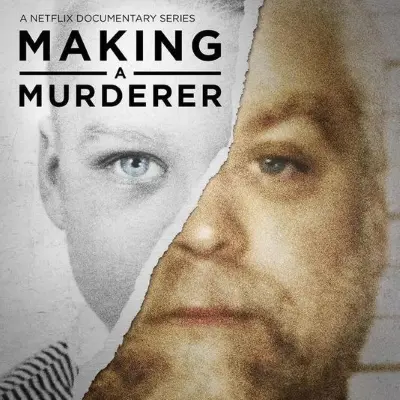TV's true-crime docuseries boom has surprised industry veterans while drawing increased scrutiny
-

HBO’s The Jinx: The Life and Deaths of Robert Durst, premiering in February 2015, and Netflix’s Making a Murderer, released later that year in December 2015, are credited with changing everything in the true-crime docuseries genre -- not only on TV but with podcasts. "The market exploded in the few years after that," says Justin Sayles. "Netflix proved Making a Murderer was no fluke by producing a seemingly endless string of widely praised series, from The Keepers to The Ted Bundy Tapes to a doc on the disastrous Fyre Festival. (In the ultimate case of having it both ways, the streamer also released the parody American Vandal in 2017 that drew on the established beats of the genre; the series was as good as, if not better than, any of the real docs it lampooned.) Other companies followed Netflix’s lead, most notably HBO. The company has a long history of producing acclaimed documentary work dating back to Time Was … in 1979, but the years after Making a Murderer and The Jinx saw an influx of true-crime films such as Beware the Slenderman, Mommy Dead and Dearest, and I Love You, Now Die." Joe Berlinger, who co-directed the true-crime documentaries Paradise Lost trilogy and Brother’s Keeper alongside Bruce Sinofsky, thought he'd be retired by now. Instead, he's been working on high-profile Netflix true-crime docuseries like Conversations With a Killer: The Ted Bundy Tapes and Crime Scene: The Vanishing at the Cecil Hotel. “I’ll be 60 this year, and I thought that by now they’d be putting me out to pasture—I’d have my nice little career and I’d be done,” Berlinger says. “I’ve never been busier.” Still, the true-crime genre has drawn increased scrutiny. "Some critics dismiss the paint-by-numbers aspect of some of the genre’s biggest hits, while others worry that the truth often takes a back seat to dramatic flair," says Sayles. "Perhaps most worrying is the fact that true crime often exploits or diminishes victims, survivors, and their family members—the people most affected by these horrendous events—while lionizing the perpetrators (and sometimes turning them into sex symbols). As the genre continues to explode in quantity, there’ll be an even greater chance of such mistakes. But that explosion also ensures a captive audience, and an opportunity to meet demand with docs that elevate the genre rather than bow to its worst instincts—that push beyond blood and gore and explore deeper issues." Mark Duplass, who executive produced Wild Wild Country for Netflix, adds: "You have those times where you think, ‘God, I wish I had been in indie rock in the early ’90s,’ or, ‘I wish I had been in Britain in the late ’60s.' I feel like I’m here right now for documentaries. And I feel like I’ve got a chance to do some stuff.”
TOPICS: Making a Murderer, The Jinx, Tiger King: Murder, Mayhem and Madness, Joe Berlinger, Documentaries
More Making a Murderer on Primetimer:- Docuseries aren't all that different from their trashier reality TV predecessors
- Making a Murderer's Steven Avery tests positive for coronavirus
- Making a Murderer subject Brendan Dassey asks Wisconsin governor for clemency
- An imprisoned inmate allegedly confesses to the Making a Murderer killing, but is the confession legitimate?
